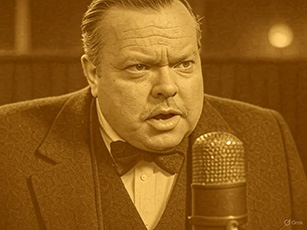In the 1930s, Orson Welles was a young, ambitious actor and director with a deep, dramatic voice and a wild imagination. By the time he was in his early 20s, he had already made a name for himself in New York theater and radio, where he performed in various dramas and narrated shows with remarkable flair.
In 1938, Welles was hired to lead a weekly radio program called "The Mercury Theatre on the Air." It was a dramatic anthology show, performing adaptations of classic novels like Dracula, Treasure Island, and A Tale of Two Cities.
Then came October 30, 1938, the night before Halloween.
That evening, Welles and his team decided to perform H.G. Wells' The War of the Worlds, a sci-fi novel about a Martian invasion. But instead of a traditional play format, they used a creative twist: they presented the drama as a series of fake news bulletins interrupting a music broadcast, as if the Martians were invading in real time.
The performance was so realistic, and so unexpected, that many listeners believed it was real.
Some tuned in late and missed the opening disclaimer that it was fiction. They heard "news reports" of explosions on Mars, strange cylinders landing in New Jersey, and heat rays destroying towns. Panic spread. Some people ran from their homes. Others called police. A few towns temporarily shut down. Headlines the next day reported chaos and outrage.
While the extent of the panic has been exaggerated over the years, it's true that Welles' broadcast shocked the nation, and made him instantly famous.
At just 23 years old, Welles became a household name. Two years later, he directed and starred in "Citizen Kane," now considered one of the greatest films ever made.

Orson Welles